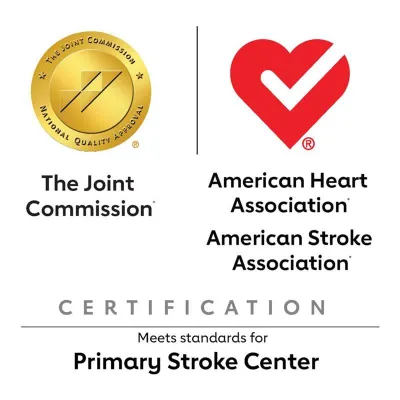
Dedicated to Caring for Your Heart
Heart disease can affect anyone. That’s why we have exceptional providers and leading-edge care techniques right here at AdventHealth South Overland Park to help you heal in body, mind and spirit.
Here, your heart care is at the center of our focus. No matter which cardiovascular condition you or a loved one faces, our Overland Park cardiologists are here to answer your questions and develop a treatment plan to help you achieve your recovery goals.
Heart and Vascular Care Near You
Rest easy knowing your health is our priority. Our team of board-certified heart specialists, including cardiologists and vascular surgeons are dedicated to caring for your cardiovascular system. We make it easy to find the right cardiologist or a convenient location, so you can continue to give your all in everything you do.

Improving Your Circulation for a Healthier You
Vascular surgeons work to improve your circulation and overall vascular health, ensuring your heart and brain stay strong. Our dedicated team performs diagnostic tests to determine the best treatment options. If surgery is required, we’re here to help you feel whole again.
Cardiovascular Testing and Treatment
The heart is an amazing muscle. And most of the time, you don’t even need to think about the complex job your heart is doing. But, when something’s off, you need comprehensive, evidence-based care, from advanced imaging to state-of-the-art surgery. That’s what you’ll find at AdventHealth South Overland Park, and these are just a few of the ways we care for your whole health.
- Cardiac Catheterization
-
Guided by an X-ray of your anatomy, your surgeon will thread a catheter from a blood vessel in your groin to your heart. There, your doctor can run tests to diagnose several heart conditions. Cardiac catheterization can also help treat certain conditions if needed.
- Stress Testing
-
A stress test is a physical exam that tests the strength of your heart at its most active state. This helps us understand your heart health.
Stress Test
In a standard stress test, your technician will attach electrical conductors called electrodes to your body, which are connected to a nearby monitor that records your heart activity during exercise.
Nuclear Stress Test
In some cases, your provider may perform a nuclear stress test, where a radioactive substance is injected into your bloodstream. The radioactive substance flows throughout your body and can be seen on images taken before and during exercise — when it comes into contact with your heart — allowing us to see your heart activity better.
After a special camera takes photos of your heart at rest, you will be connected to electrodes and asked to walk on a treadmill, similar to a standard treadmill stress test. Your technician will increase the intensity of the workout, and at the most strenuous part of the exercise, more of the radioactive substance will be administered into your bloodstream. Your heart will be scanned again so your radiologist can compare how your blood circulates when your heart is at rest versus when it’s working hard.
Stress Echocardiogram
Like a standard treadmill stress test, a stress echocardiogram uses electrodes connected to a computer screen to monitor your heart at its most intense level of exercise. The difference is the instrument used to capture the monitoring.
Before your exam, your technician will move a wand-like device called a transducer across your chest to collect sound waves from your heart. Then, you’ll walk on a treadmill with increasing intensity, with the electrodes still connected to the monitoring equipment. As you reach the most intense part of the exercise, you will immediately end the exercise. As you rest, your technician will return the transducer to your chest and capture images of your heart.
- Echocardiogram
-
Transthoracic Echocardiogram
In a transthoracic echocardiogram, sound waves are sent from a wand-like device called a transducer into your chest. Echoes from the sound waves are recorded back into the transducer and translated into images at a nearby monitor.
Transesophageal Echocardiogram
In some cases, your technician may focus on capturing sound waves from your esophagus to see if your heart is clotting. This exam is called a transesophageal echocardiogram.
- Thoracoscopy
-
In this procedure, your surgeon will thread a long tube called a thoracoscope into your shoulder blade toward your chest and lungs. Once the thoracoscope reaches its destination, your surgeon can capture videos of the inside of your body using a tiny camera attached to the end of the device.
- Heart Failure
-
Heart failure can be an overwhelming diagnosis. Have peace of mind knowing that your care will be guided by a team of experienced and compassionate providers. From the cardiologist who oversees your care to the rehabilitation therapists who cheer on your recovery, we’re here for you.

Know Your Risk With the HEARTaware Assessment
When it comes to your heart health, it can take just a few small changes to make a big, positive impact. Here at AdventHealth, we offer HEARTaware, a free online heart disease risk assessment designed to help you identify your risk factors for developing heart disease. Click below to participate in this quick and free heart risk assessment.
Experts in Matters of the Heart
AdventHealth South Overland Park has been recognized for our commitment to innovative, safe and high-quality heart and vascular care.

Get With The Guidelines® - Resuscitation Target Survival
AdventHealth South Overland Park has received the American Heart Association’s Target: Survival quality achievement award for its commitment to treating in-hospital cardiac arrest, ultimately helping to improve survival rates.

Get With The Guidelines®- Resuscitation Gold
AdventHealth South Overland Park has received the American Heart Association’s Get With The Guidelines® - Resuscitation Gold quality achievement award for its commitment to treating in-hospital cardiac arrest, ultimately helping to improve survival rates.

Primary Stroke Center
AdventHealth South Overland Park has earned The Joint Commission’s Gold Seal of Approval® and the American Heart and Stroke Association’s Heart-Check mark for Primary Stroke Center.
Let Us Care Yor You
We’re here to answer questions and ease your mind at every step of your heart care journey.
Take Health Into
Your Own Hands
Do more than ever before in one handy download.
- View Lab Results
- Pay Bills
- Message Your Care Team
- Schedule Appointments
- 24/7 Virtual Urgent Care
- Access Health Records with MyChart
